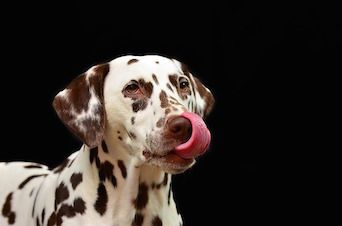Genetic Cause Found for Acute Respiratory Distress Syndrome in Dalmatians
Finnish researchers have identified the genetic cause of ARDS in Dalmatians, offering new pathophysiologic insight and enabling the development of a genetic test for this multifactorial syndrome.

Researchers from the University of Helsinki, Finland, have identified the gene mutation responsible for an inherited fatal respiratory disease in Dalmatian dogs. The findings make possible a genetic test for the condition in breeding dogs and also clarify the pathophysiology of the disease. The report was published in the February issue of PLOS Genetics.
Acute respiratory distress syndrome (ARDS), an inflammatory lung condition characterized by impaired pulmonary gas exchange, carries a substantial risk of death. In humans, ARDS is associated with acute interstitial pneumonia and acute exacerbation of usual interstitial pneumonia, say the authors. Although various inflammatory mediators have been implicated in gene studies, the molecular pathways involved are not clear.
The authors previously reported a familial ARDS-like syndrome in Dalmatian puppies. Affected puppies began showing signs at a mean age of 7 months and developed progressive tachypnea, dyspnea, and respiratory failure. The average time from onset of clinical signs to death or euthanasia was 3 weeks. Some of the puppies also had renal aplasia and hydrocephalus.
The investigators analyzed DNA samples from 7 clinically affected Dalmatian puppies, some of their close relatives, and healthy control dogs. The total study population included samples from 188 Dalmatians and 31 pointers, a breed genetically similar to Dalmatians.
Using a combination of whole-genome sequencing and homozygosity mapping, the researchers identified a mutation in the ANLN gene in the affected puppies. Puppies with the disease were all homozygous for the variant, and some close relatives (a parent, a grandparent, and one sibling) were heterozygous. Among 176 unaffected Dalmatians, the carrier frequency was 1.7%. None of the pointers had the mutation.
ANLN encodes anillin actin binding protein, which functions in cell division and cell migration. The investigators verified that the protein was expressed in the bronchiolar epithelium of the lungs of a normal dog but was absent in the lungs of affected dogs.
Lung lesions in affected puppies included atypical hyperplasia and squamous metaplasia of bronchiolar epithelium—signs of abnormal epithelial regeneration consistent with a functional defect in anillin actin binding protein, say the authors. “Therefore, our study has important implications since it uncovers a novel candidate gene for ARDS and sheds new light on the understanding of the underlying pathophysiology,” they write.
In humans, ANLN mutations are linked to focal segmental glomerulosclerosis, a kidney disease. The researchers did not find kidney lesions in the affected dogs. However, they note that renal aplasia in 2 of the affected puppies could have been associated with ANLN expression. The course of ARDS in Dalmatian puppies is too short to be able to study renal manifestations of ANLN mutation in dogs, they add.
The authors conclude that a genetic test for the ANLN mutation could make it possible to eliminate familial ARDS in Dalmatians.
The study was funded by Finnish foundations that had no role in study design, data collection, or manuscript preparation. One author is part owner of the company producing the genetic test for the disease.
Dr. Laurie Anne Walden received her doctorate in veterinary medicine from North Carolina State University. After an internship in small animal medicine and surgery at Auburn University, she returned to North Carolina, where she has been in small animal primary care practice for over 20 years. Dr. Walden is also a board-certified editor in the life sciences and owner of Walden Medical Writing, LLC. She works as a full-time freelance medical writer and editor and continues to see patients a few days each month.